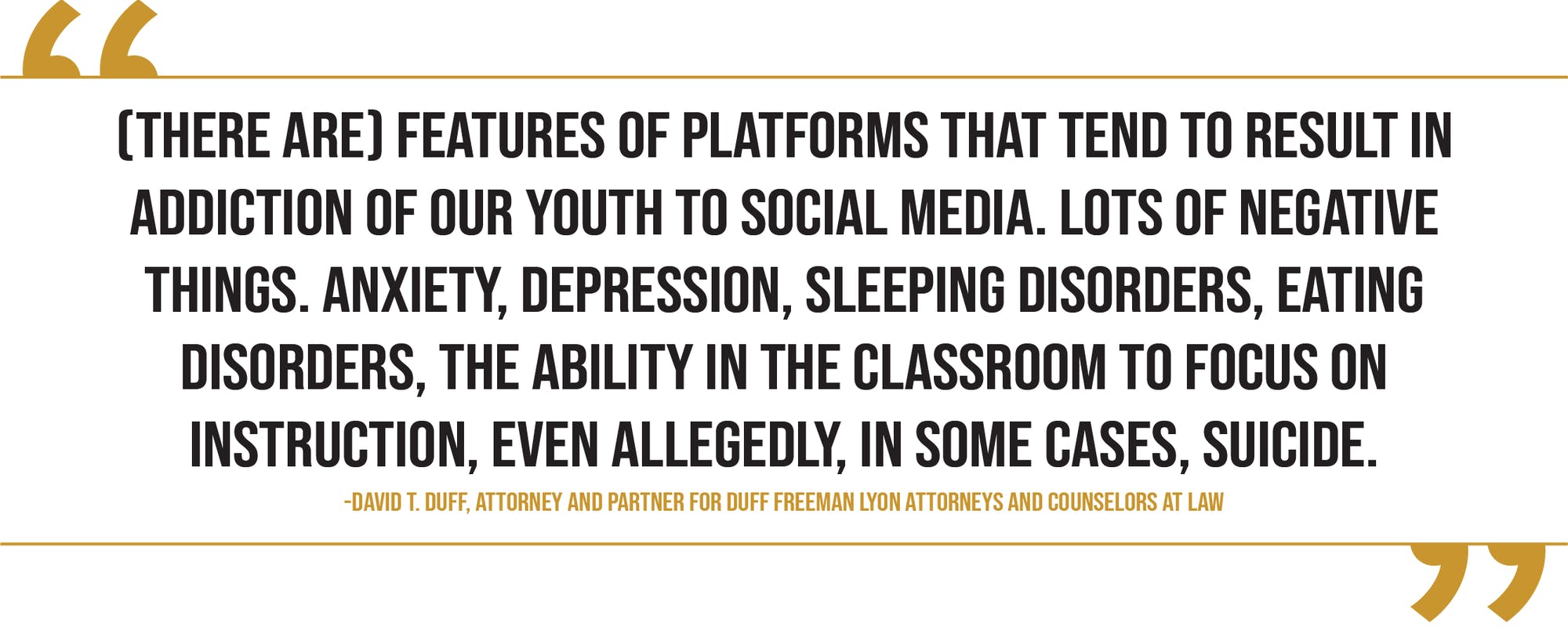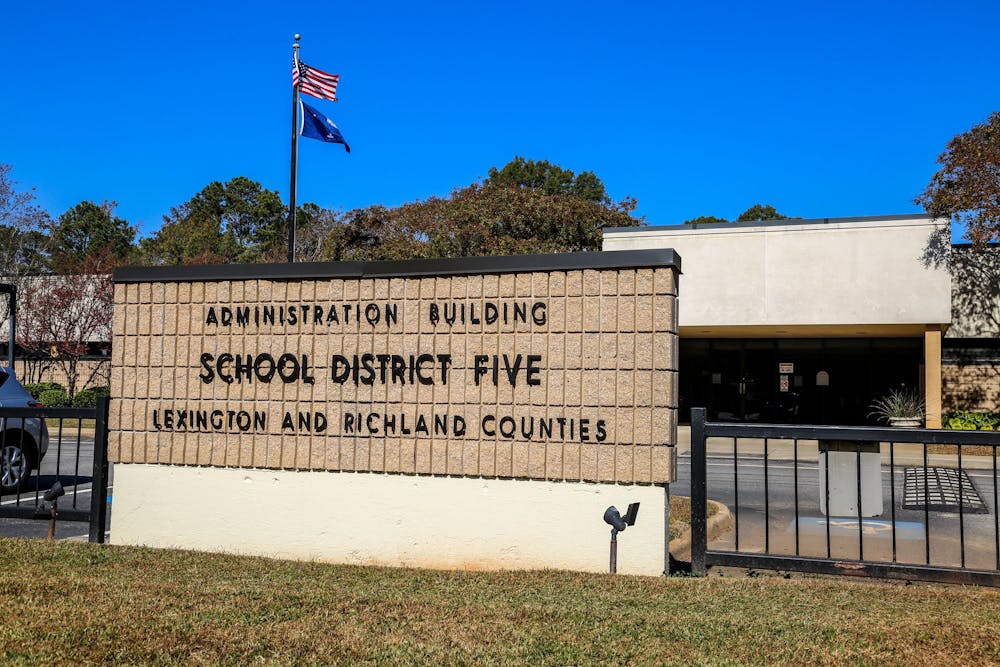Professors at USC and officials from school districts in Richland and Lexington counties are concerned with the effects of social media platforms, such as TikTok, on students' mental health and education in and out of the classroom.
Students at the University of South Carolina learned in early August that they would no longer be able to access TikTok on USC's Wi-Fi network.
But the concern for students' well-being and education spans beyond college campuses.
Richland One, Richland Two, Lexington One and Lexington-Richland Five school districts voted in late September to join a California-based federal lawsuit against tech giant Meta, according to The Post and Courier.
The lawsuit is focused on protecting adolescents from the negative effects of social media, said David Duff, an attorney and partner for Duff Freeman Lyon Attorneys and Counselors at Law.
Laura McElveen, director of communications for School District Five of Lexington and Richland Counties, said in an email to The Daily Gamecock that certain aspects of social media usage can cause negative impacts on students and how they learn.
"We feel that by joining the litigation we are acting in the best interests and well-being of our students and their education," McElveen said.
The Daily Gamecock also reached out to Richland One, Richland Two and Lexington One for comment on the lawsuit but did not receive a response.
Duff said part of the issue they are facing is how social media platforms personally curate content for users to keep them interested and distracted for long periods of time on a consistent basis.
"It focuses on certain features of these social media platforms that have the effect of keeping our adolescents and pre-adolescents online frequently and for as long as possible, which has a negative effect on the youths," Duff said.
Social media’s influence on students' education goes hand-in-hand with its effect on their mental health, said Mike McCall, a psychology professor at USC. When students are in mental destress from social media, they don't perform as well in educational settings, he said.
McCall said limiting time spent on apps such as TikTok and increasing time spent on real-life interactions can combat the negative effects of social media on mental health.
“Be more present," McCall said. "Practicing being present through your social interactions by just putting your phone in your bag, in your pocket. Make it out of sight where you can’t see the alerts going off.”
Duff said the districts that have already gotten involved serve an important role in combatting some of the negative effects that social media creates among adolescents.
"(There are) features of platforms that tend to result in addiction of our youth to social media," Duff said. "Lots of negative things — Anxiety, depression, sleeping disorders, eating disorders, the ability in the classroom to focus on instruction, even allegedly, in some cases, suicide."

However, some instructors have learned to adapt to the presence of social media by using it as a tool rather than let it be a distraction for students, said Joshua Meyer-Gutbrod, a political science professor at USC
"You can't teach political science without talking about the news, and what I've found with students over the years is that students generally get their news from social media," Meyer-Gutbrod said. "Young people still seem to get a lot of their news through social media, and it varies as to whether or not they see the headline in social media and run with it or if they click through and try and follow it."
Tiktok's access to data and its users' security, however, have also become major concerns, prompting USC to ban the app earlier this year.
USC announced in a university newsletter in August that due to “ongoing security concerns on a state, federal, and international level, the USC system’s networks will no longer support access to the TikTok social media platform.”
Gov. Henry McMaster sent a letter to Marcia Adams, the executive director of the Department of Administration, in December 2022, in which he said TikTok was a foreign threat to the safety of South Carolinians and asked it to be prohibited on all state-issued devices.
"Protecting our State's critical cyber infrastructure from foreign and domestic threats is key to ensuring the health, safety, and well-being of our citizens and businesses," McMaster said in the letter.
Duff said the lawsuit will probably go on for several years before the school districts see a resolution.

